In an effort to improve its services to students in poor mental health, UNC recently announced a new hotline that will connect them directly to a mental health professional.
The new resource of UNC’s Counseling and Psychological Services, or CAPS, came at the recommendation from the university’s Mental Health Task Force. The 24/7 crisis support line will be accessible using CAPS’ current phone line and connects those calling to counselors at ProtoCall, a 24-hour hotline that provides around-the-clock mental health support.
Allen O’Barr, the director of CAPS, says the service is meant to be for students in need of support or crisis intervention outside of CAPS’ regular business hours.
“We were not really providing as good of a service as we could have provided and are now providing through ProtoCall,” says O’Barr. “The benefit of this service is that we have mental health counselors available after [business] hours for students to call directly. That’s really the state-of-the-art treatment for students in distress.”
Many campuses use 24/7 crisis support lines as a method for helping students cope with mental health problems. Interim Vice Chancellor for Student Affairs Jonathan Sauls says UNC regularly examines how other schools are addressing students’ mental health, and the new hotline is no different. He also says that any after-hours call to ProtoCall will not go unaddressed by CAPS’ staff. The hotline professional will record notes that are sent to CAPS to access the following day.
Sauls says CAPS will still have an on-call staff member for more immediate mental health emergencies.
“If there’s some more urgent crisis that requires some in-person care,” he says, “CAPS will continue to have an on-call person that can have dialogue with that provider, and we can facilitate some in-person care as well.”
The Mental Health Task Force was created in the spring of 2018 by former Vice Chancellor for Student Affairs Winston Crisp and Executive Vice Chancellor and Provost Bob Blouin. They championed the task force as a method to address mental health care needs of UNC students amidst a growing awareness of mental health struggles throughout higher education. The group submitted nearly 60 recommendations to the university in April, one suggesting to “improve accessibility and ease of navigability” of the CAPS model.
O’Barr says a variety of reasons are causing the need for more accessibility and the overall rise in mental health treatment for students.
“Clearly, there has been a decrease in stigma,” he says. “There has also been an increase in distress over the last five to 10 years. We’ve seen that not just in college counseling centers but globally and nationally.”
UNC says it will aim to implement other recommendations from the Mental Health Task Force in the coming months and years.
Related Stories
‹
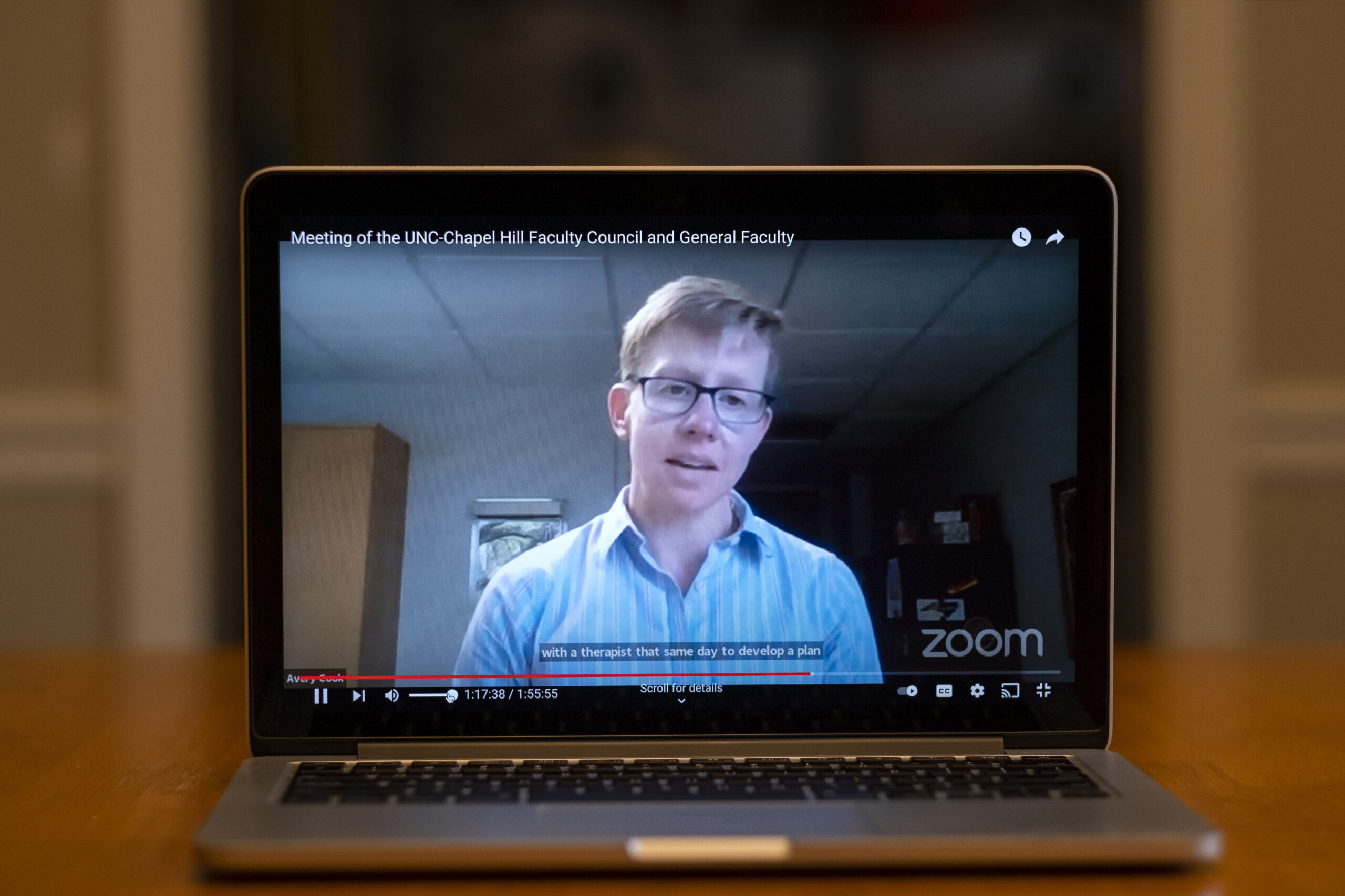
'They Are Not Alone': UNC CAPS Director Details Expansion, Vision for Mental Health ServicesAs mental health continues to be a dominating issue across the country, especially on college campuses, UNC is continuing to seek ways to help address its students’ needs. Now, they’re doing it with new leadership — who has already overseen some major changes. The university’s Counseling and Psychological Services, or CAPS, recently took […]

UNC Confirms Student Death in Residence Hall 1 Week Before Classes EndedWhile the UNC campus community is celebrating its last day of classes on Friday, details are emerging of a tragedy that took place one week before. A student death was reported in Thomas Ruffin Jr. Residence Hall on the morning of Friday, April 21, according to UNC Police’s crime log. WRAL first reported the student […]
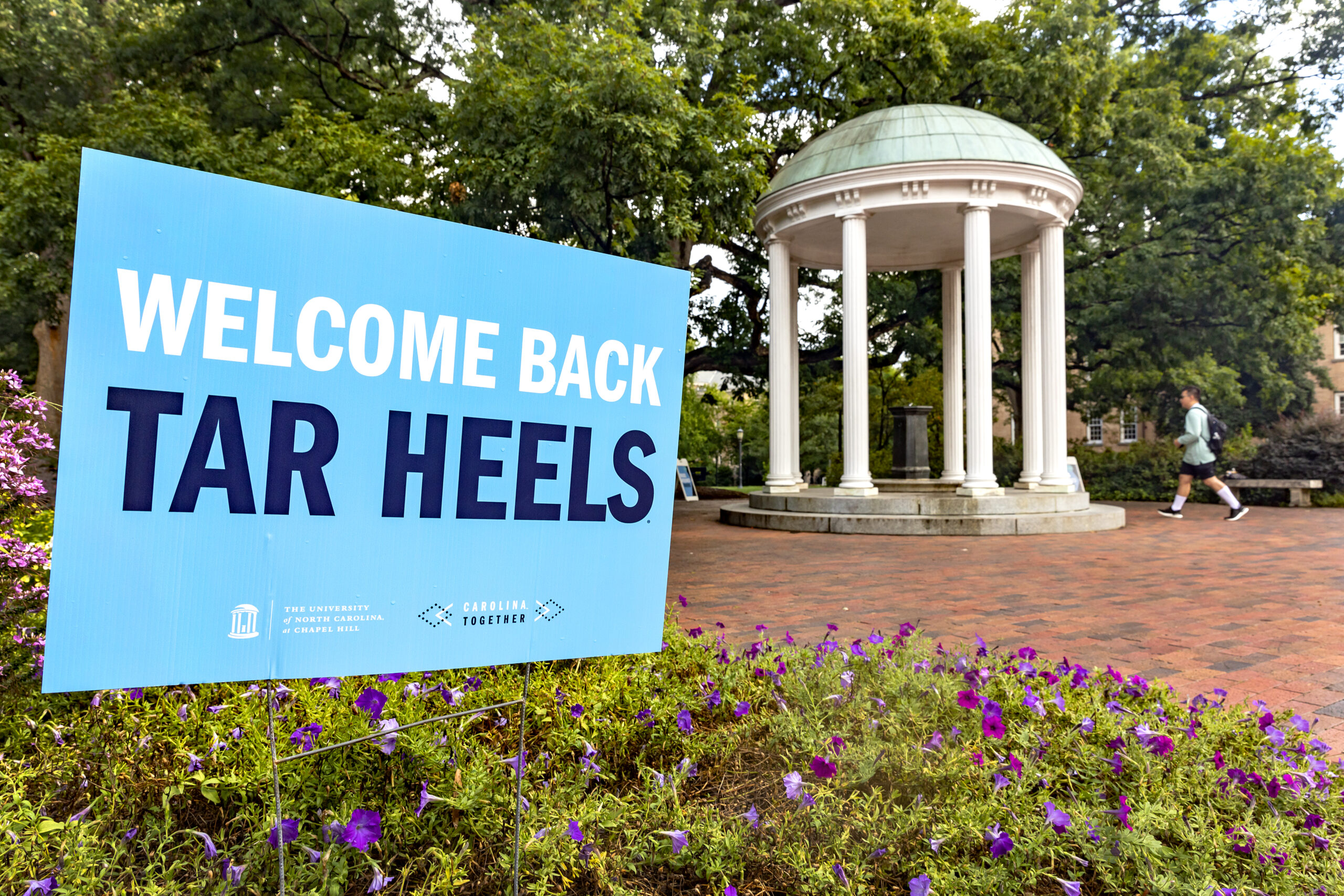
Top Stories of 2021: The Return to In-Person Learning and its Mental TollTo reflect on the year, Chapelboro.com is re-publishing some of the top stories that impacted and defined our community’s experience in 2021. These stories and topics affected Chapel Hill, Carrboro and the rest of our region. After more than a year of virtual learning, students of all ages returned to the classroom this year. Orange […]

UNC Shares Date for Mental Health Summit; University System Gives Funding for ResourcesUNC shared details of its upcoming mental health summit for the campus community on Thursday. The university will hold a gathering of mental health researchers and experts to speak with students, staff and others related to UNC on Monday, November 15. The summit, which will last from 9 a.m. to 5 p.m., is to chiefly […]

UNC Women's Soccer Dedicates Game vs. #1 FSU to Mental Health AwarenessThe UNC women’s soccer game on Thursday night is catching attention for several reasons. One reason, of course, is the Tar Heels are matching up with the top-ranked team in the country and reigning national champions: Florida State. Another, though, is that the team is dedicating their efforts to better discussion and awareness of mental […]

'Let's Not Forget Our Neighbors': UNC Leader Shares Western NC's Needs Amid Helene RecoveryIn western North Carolina, recovery continues from Hurricane Helene last fall. UNC officials are working to harness their resources to help.
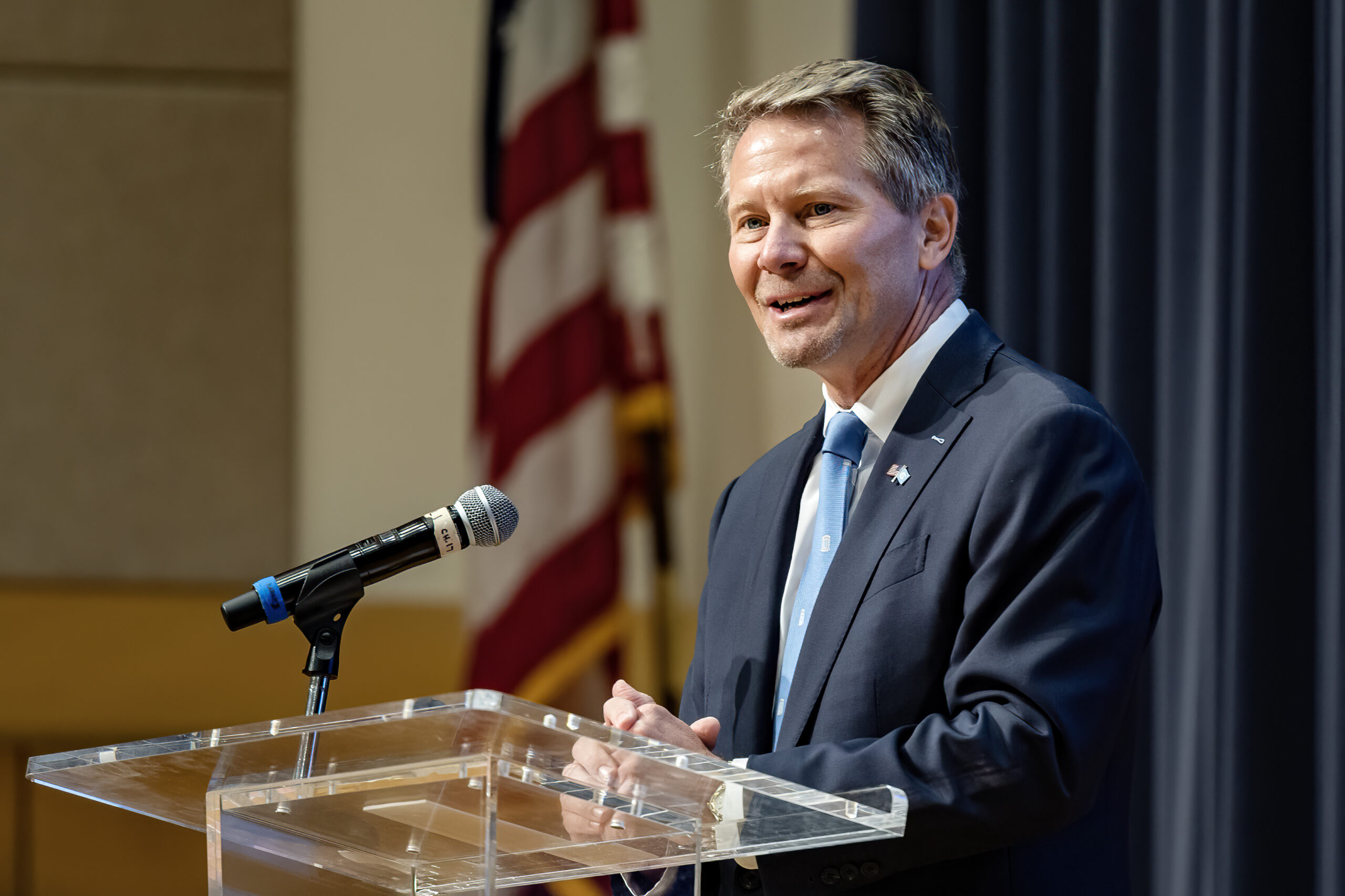
UNC Chancellor Shares Updates on 'Carolina Across 100,' Off-Campus InitiativesWhile classes start this week on campus, UNC is also working on several initiatives off of its campus to expand its footprint and influence.
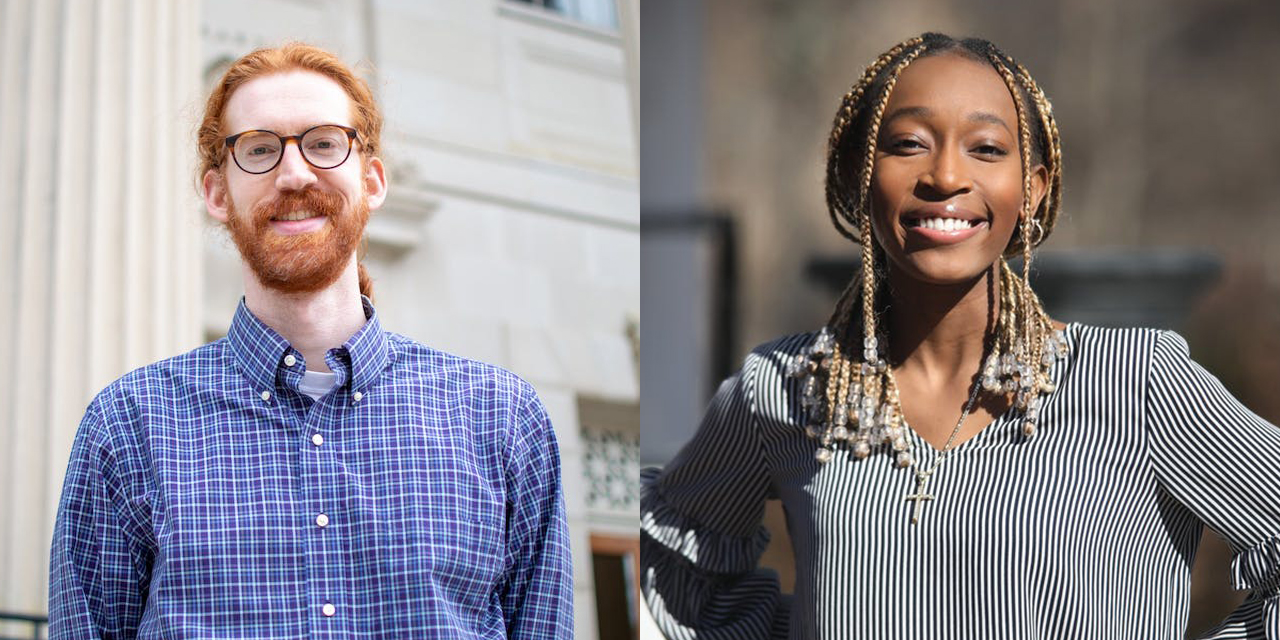
UNC Student Representatives Share Successes, Farewells with Board of TrusteesUNC Student Body President Taliajah Vann and Graduate Student President Theodore Nollert shared highlights of their tenures last Thursday.
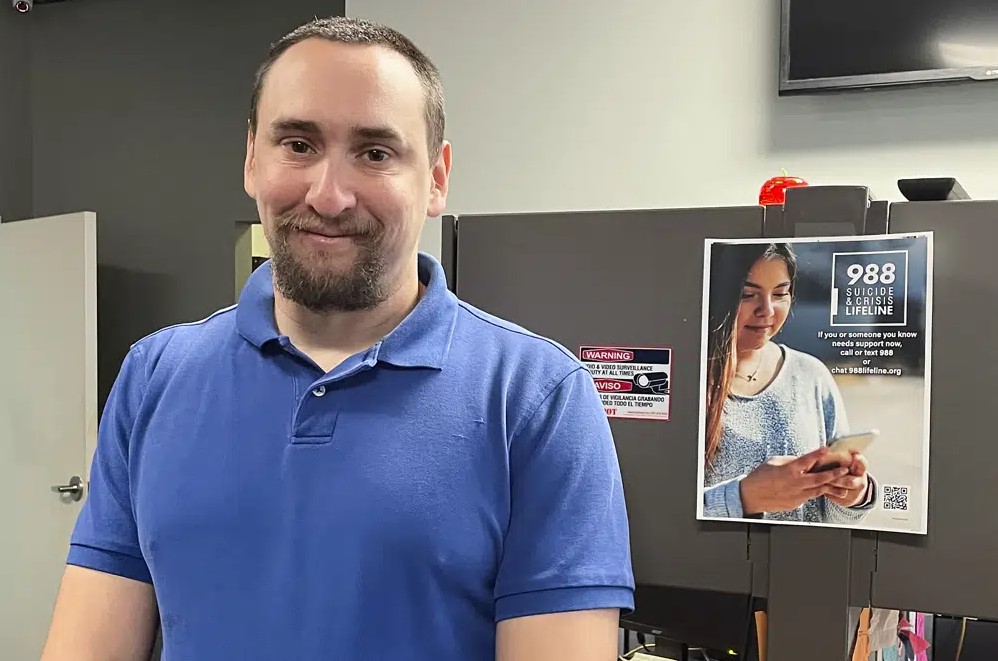
Callers Keep Flooding 988 Mental Health, Suicide HelplineWritten by AMANDA SEITZ When Jamieson Brill answers a crisis call from a Spanish speaker on the newly launched national 988 mental health helpline, he rarely mentions the word suicide, or “suicidio.” Brill, whose family hails from Puerto Rico, knows that just discussing the term in some Spanish-speaking cultures is so frowned upon that many […]

'They're Waiting For You to Call': UNC Psychiatrist Shares Details of 988 HotlineThe updated 988 Suicide and Crisis Lifeline recently launched, meant to make access to mental health care easier as Americans struggle with downturns in wellbeing. 97.9 The Hill’s Aaron Keck chatted with UNC professor of psychiatry Dr. Christina Cruz about the resource and state of mental health. The following is an edited transcript. Listen to the […]
›













—-“Clearly, there has been a decrease in stigma,” he says????
There has been a substantial decrease in the number of people participating in that prejudice. Still, even one an any campus is too many.